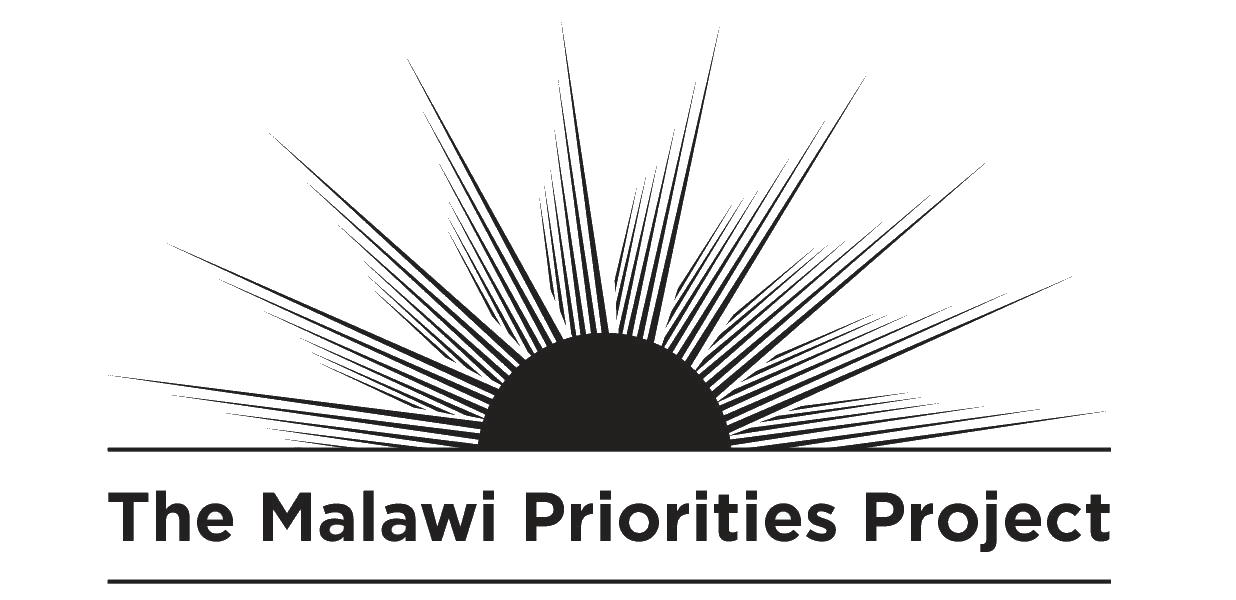About The Project
What is the project about?
Malawi Priorities is a project designed to help Malawi determine policy priorities so as to do more with each Kwacha that the country spends. The aim of the Malawi Priorities Project is to provide the government and its development partners with a systematic process to help prioritize the most effective policy solutions so as to maximize the social and economic benefits of the investments. The project facilitated the prioritization of policy options or the country based on cost-benefit analyses. The project also sought to identify interventions that enable the government to generate more financial resources to finance its development agenda. This was achieved through academic research, stakeholder engagement, and a targeted outreach strategy to determine the best investments.
Timeliness of the project
The Malawi National Planning Commission (NPC) reviewed Malawi’s long-term national development plan, Vision 2020, with a view to beginning the development of a successor vision, National Transformation (NT) 2063. The NPC also planned a mid-term review of the current medium-term national development strategy, the Malawi Growth, and Development Strategy(MGDS) III. The Malawi Priorities hence informed the discourse around Malawi’s long-term aspirations and the development pathways that informed the development of the NT 2063. More importantly, the priorities to be defined at the sector level informed subsequent medium-term development plans that operationalized the NT2063. The Malawi Priorities. hence supported evidence-based planning and implementation of Malawi’s inclusive and sustainable socio-economic transformation agenda. Malawi Priorities fitted neatly within NPC’s mandate.
How were the priorities be defined?
The Malawi Priorities approach worked with a range of stakeholders and partners to identify the most urgent issues and establish many of the most promising solutions to optimal resource generation and utilization. These solutions ranged across many different policy areas, including agriculture commercialization, industrialization, urbanization, energy and infrastructure development, education, health, governance, water, sanitation, environment. Representatives from across Malawi then helped pick a select number of the most important solutions to be analyzed. The project then brought together the best local, regional and international academic experts that employed cost-benefit analysis together with sector experts’ input, broad stakeholder engagement, and extensive policy outreach to evaluate and prioritize the top solutions.
Who will coordinate the project?
The project was coordinated by the NPC, with support from the African Institute for Development Policy (AFIDEP). The academic research was coordinated by the Copenhagen Consensus Centre (CCC) who has pioneered the methodology for economic analysis coupled with a cost-benefit analysis to produce comparable returns on investment of a range of interventions. The economic research was supported by international expert economists and local eminent economists. The importance of having the project coordinated by NPC, supported by AFIDEP was to ensure its institutionalization in government systems and relevance to the Malawi context so as to maximize the uptake of the findings. The project built on experience and lessons with the priorities approach in other countries, including Haiti, Bangladesh, and India (with largely successful outcomes), and is currently ongoing in Ghana. Some outcomes from these and other experiences could be accessed here.
Project budget estimate
In Malawi, the project budget was estimated at $3,098,611, over a two-year period. A prospective US-based funder was interested in funding part of the project but requires the support of other partners.

